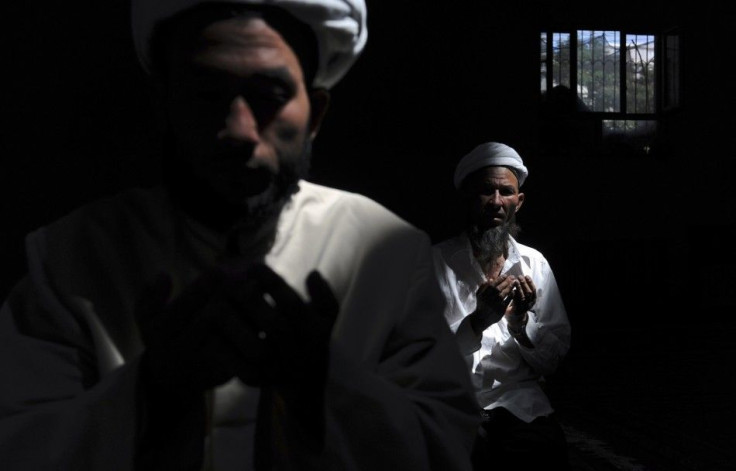China Limits Fasting For Muslim Uighurs During Ramadan In Xinjiang

China has banned Muslim officials and students under the age of 18 in the restive northwestern region of Xinjiang from fasting during the Islamic holy month of Ramadan in an effort to clamp down on religious extremism.
Officials in the Xinjiang Uighur Autonomous Region have also been prompted by the Chinese central government, citing health concerns, to discourage local Muslim populations from participating in the 30-day, dawn-to-dusk fasting period.
"The county committee has issued comprehensive policies on maintaining social stability during the Ramadan period. It is forbidden for Communist Party cadres, civil officials (including those who have retired) and students to participate in Ramadan religious activities," read one statement from the Zonglang township in Xinjiang's Kashgar district, according to the AFP news agency.
The statement also urged party officials to bring "gifts" of food to local village leaders, while other local government websites issued similar statements aimed at restricting religious activity during Ramadan.
The move has drawn criticism from the World Uighur Congress, an international organization which advocates for the rights of China's Uighur population, a predominantly Muslim ethnic minority native to the Xinjiang region.
Dilshat Rexit, spokesman of the World Uyghur Congress, warned that the restrictions on religious activity would incite more unrest in the already restive region, saying they would provoke "the Uighur people to resist (Chinese rule) even further."
In July 2009, Xinjiang's capital Urumqi was the site of ethnically-motivated mob violence after demonstrations by Uighurs against the killing of two Uighurs by Han Chinese (China's dominant ethnic group) factory workers in Guangdong turned violent.
Local Han Chinese and their businesses were targeted in the attacks, prompting a swift crackdown by the Chinese military. Chinese state media reported the death toll close to 200 with the majority being Han Chinese, though the WUC reported that it was closer to 600 and that the government was understating the number of Uighur casualties.
Strong ethnic tensions have persisted in Xinjiang, where a large influx of Han Chinese migrants has been viewed by many Uighurs as a threat to their cultural identity as adopting Chinese language and culture is seen as necessary for achieving upward mobility in society.
China has denounced the WUC as a terrorist organization, accusing it of inciting the 2009 riots for political purposes and pursing a separatist agenda in the region.
Xinjiang has been an autonomously administered region since 1955, but positions of authority are held by Communist Party members loyal to the central government.
The WUC has accused the Chinese government of intentionally resettling millions of Han Chinese in Xinjiang to dilute the local culture. The government claims it is modernizing and developing the region.
According to the WUC, the percentage of the Xinjiang population who are Han Chinese jumped from 5 percent in the 1940s to 40 percent at present.
© Copyright IBTimes 2024. All rights reserved.





















